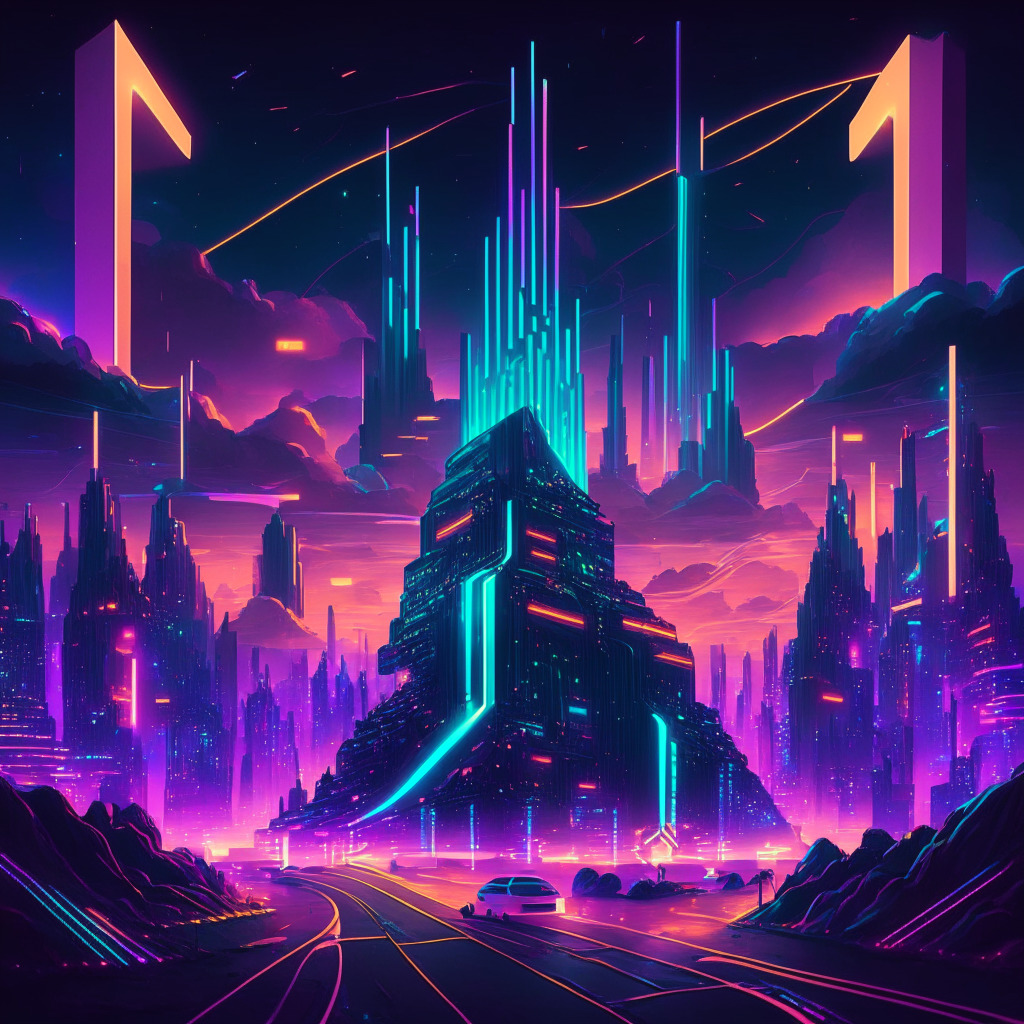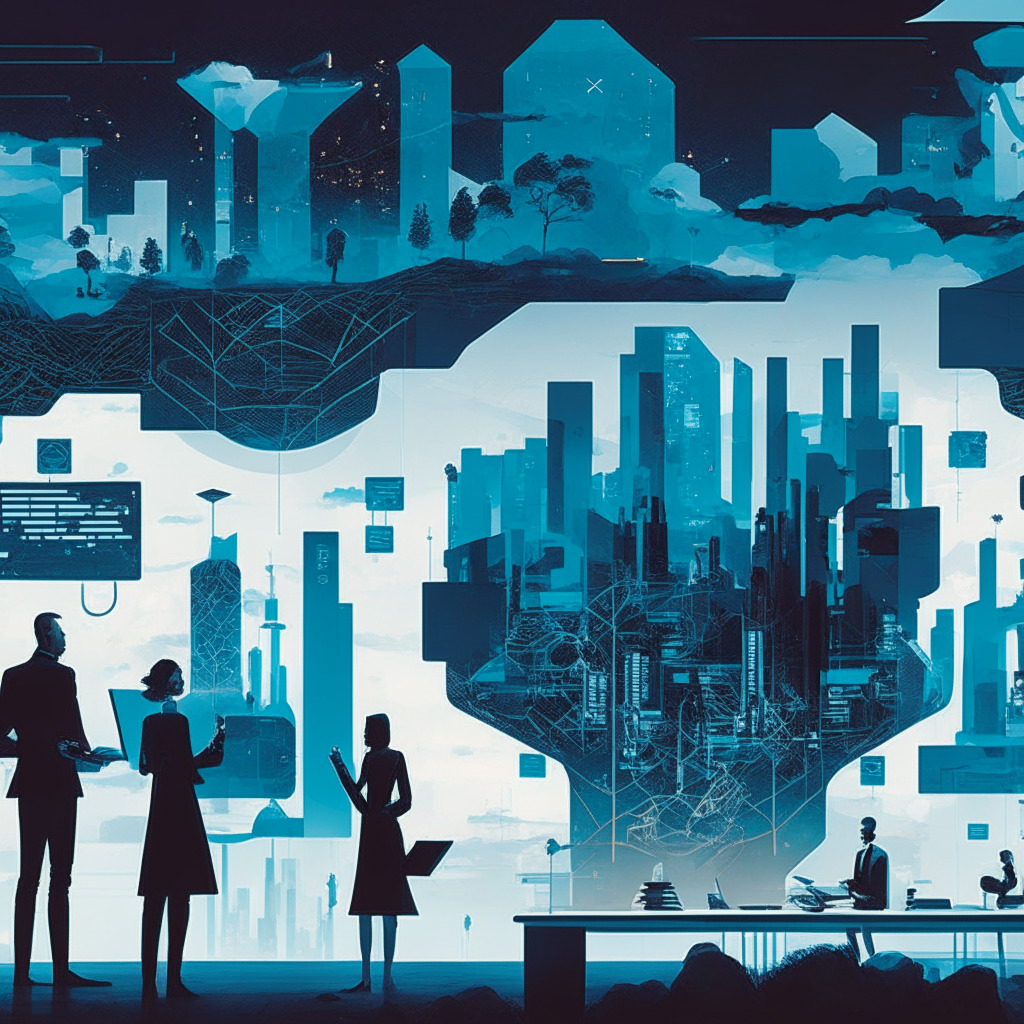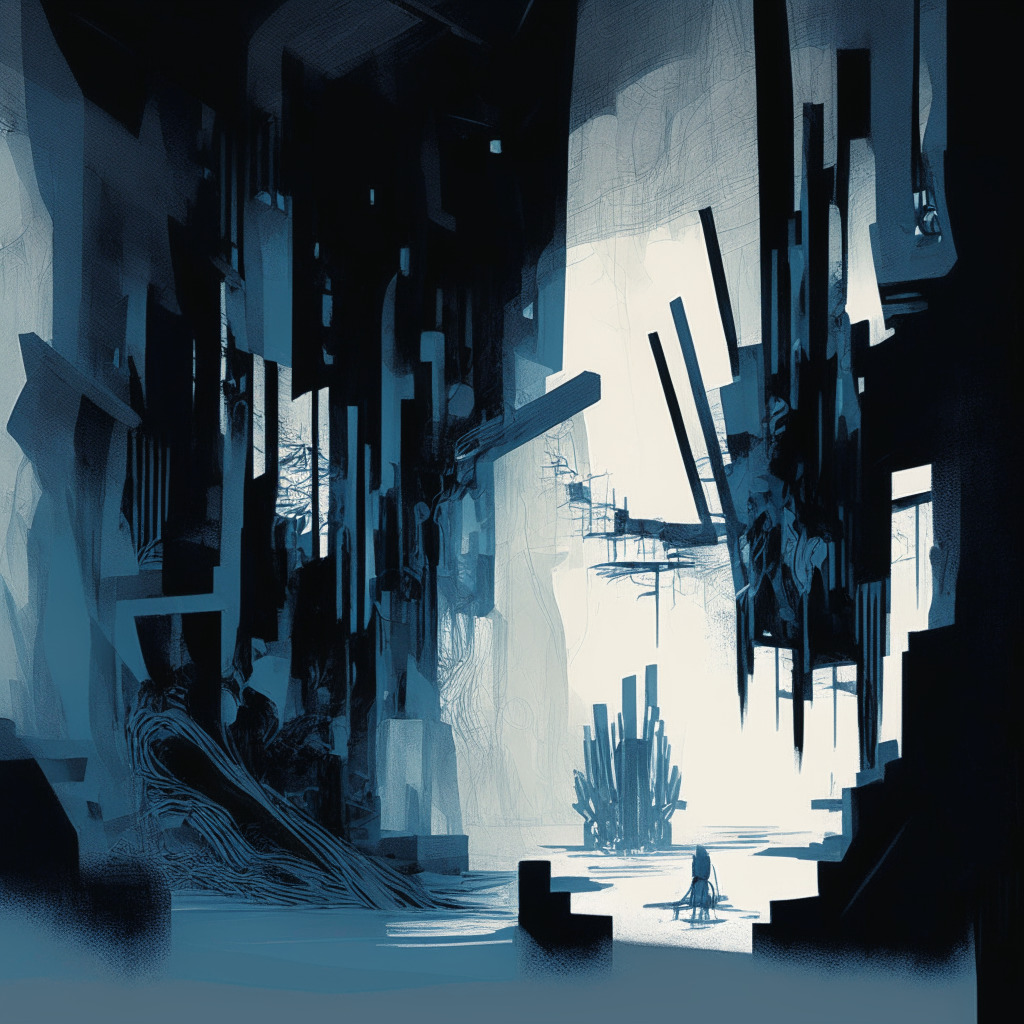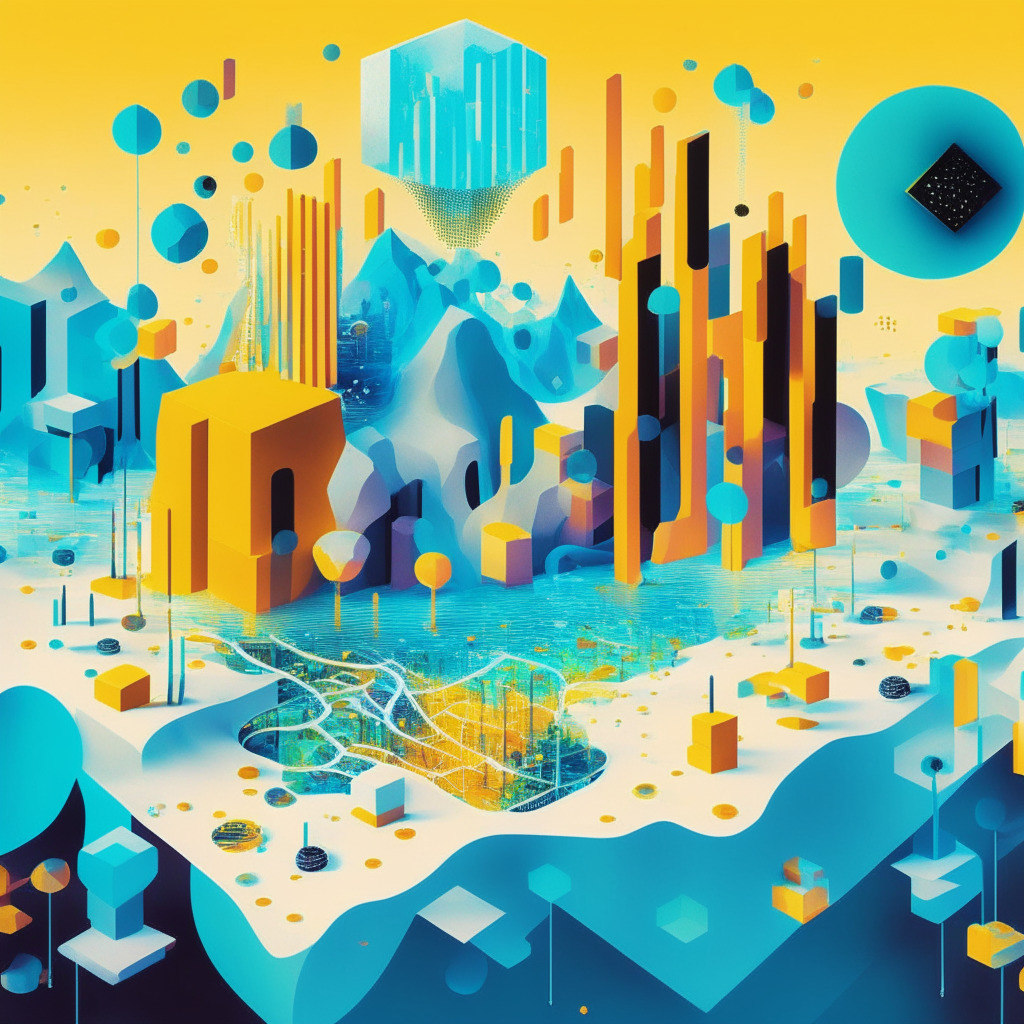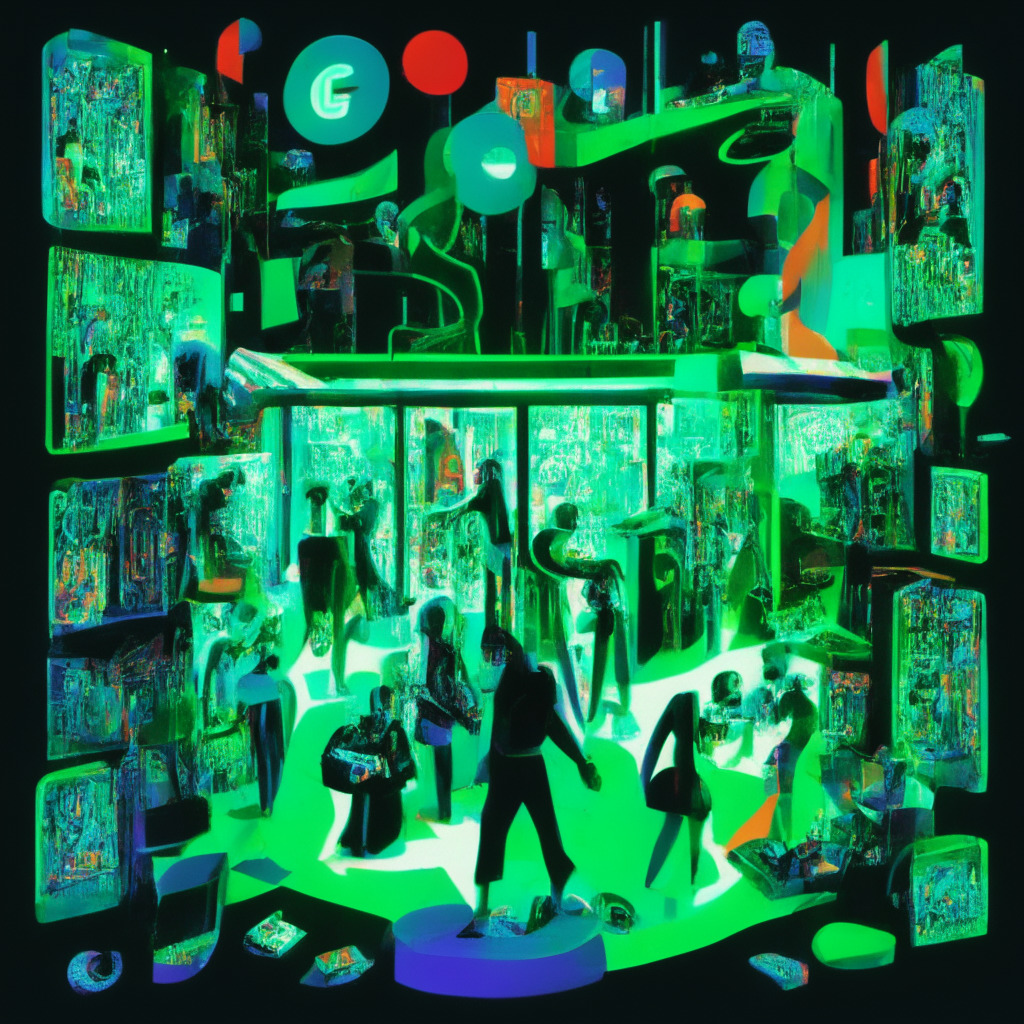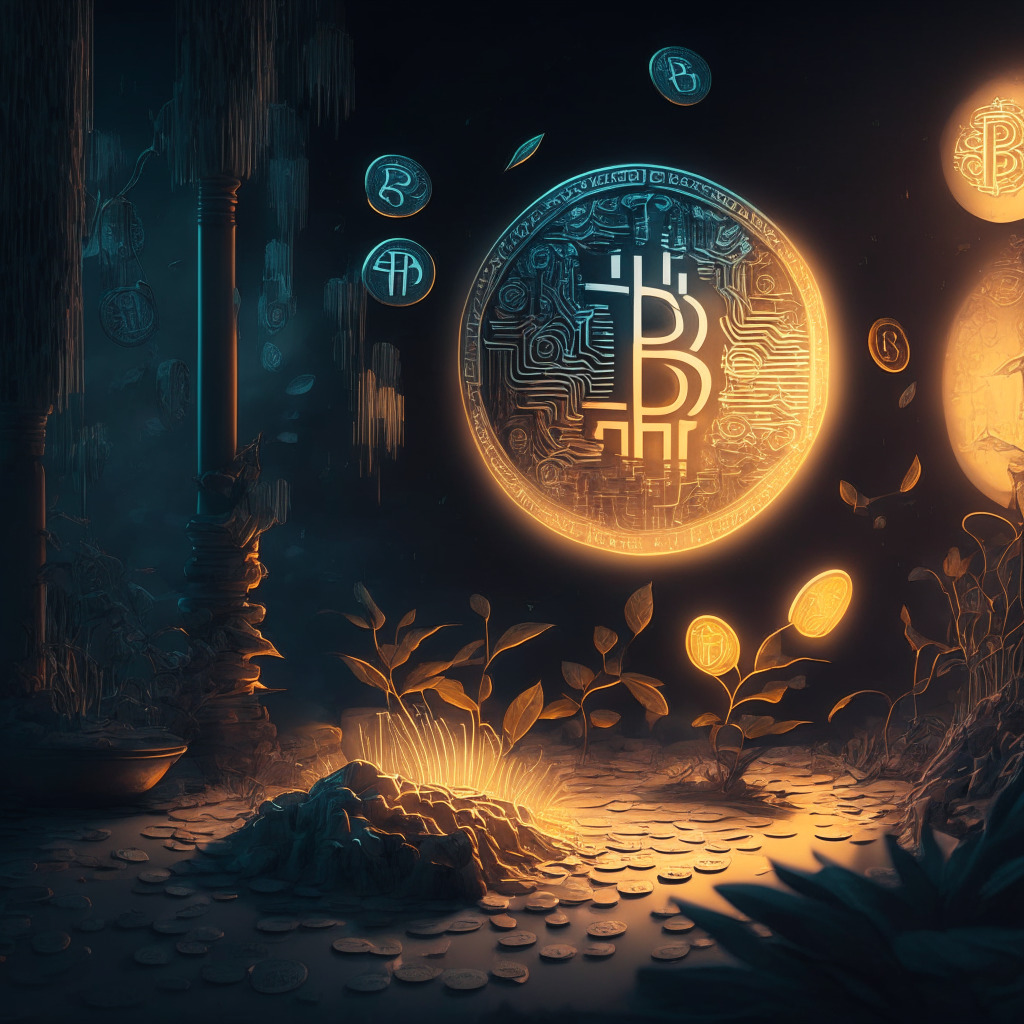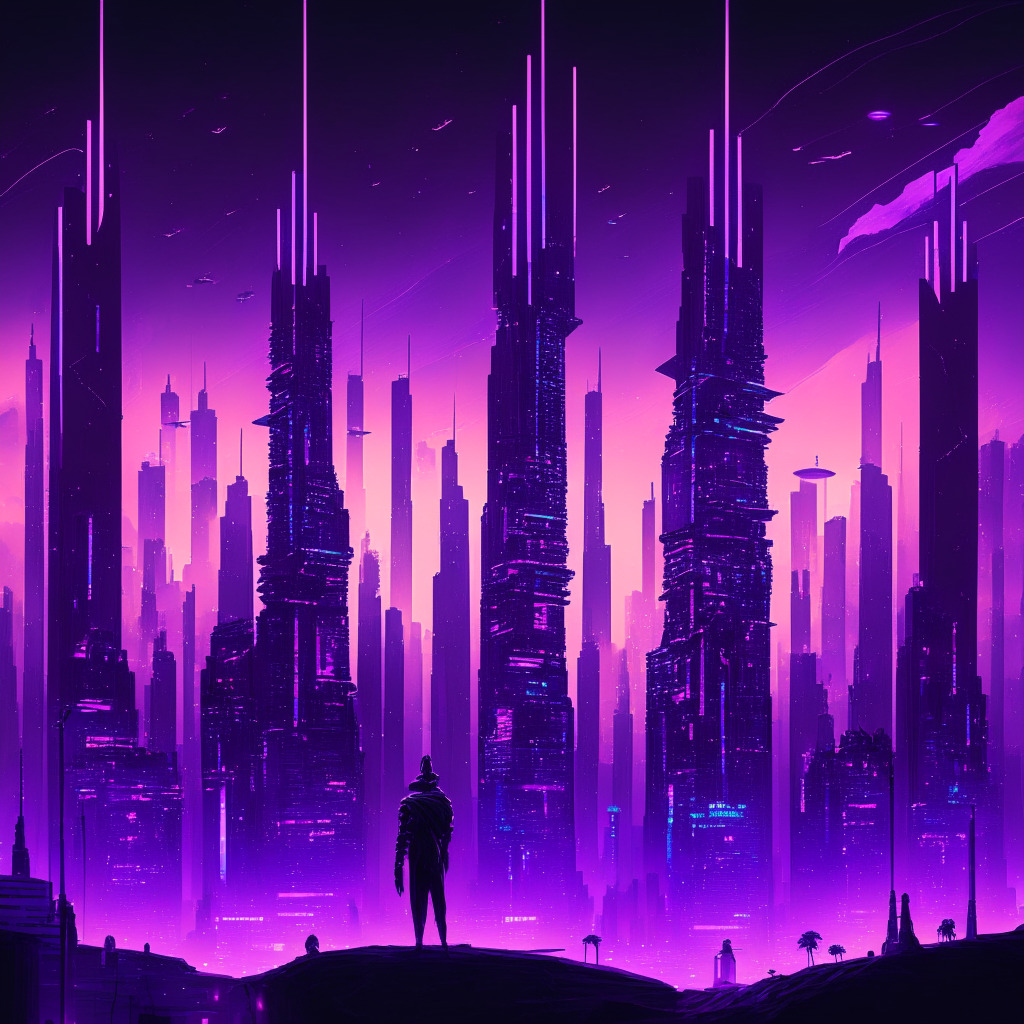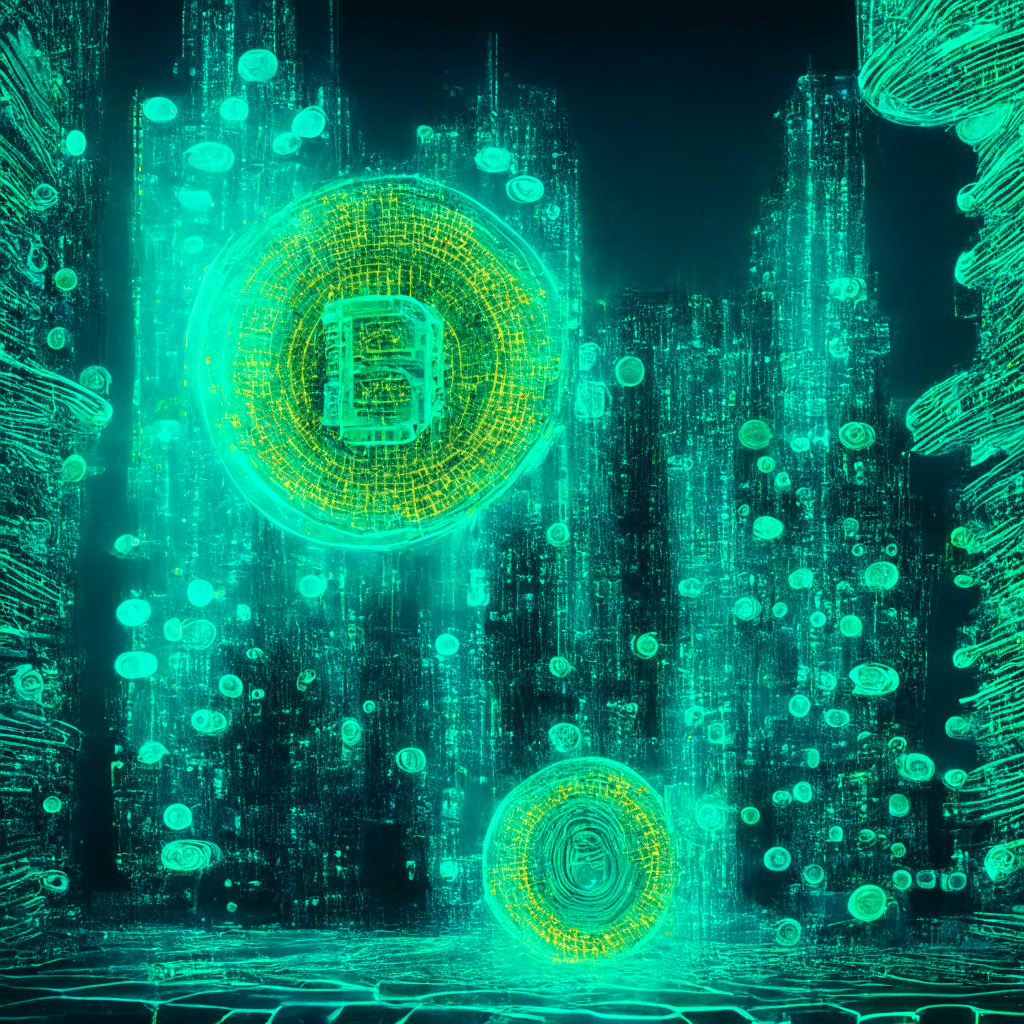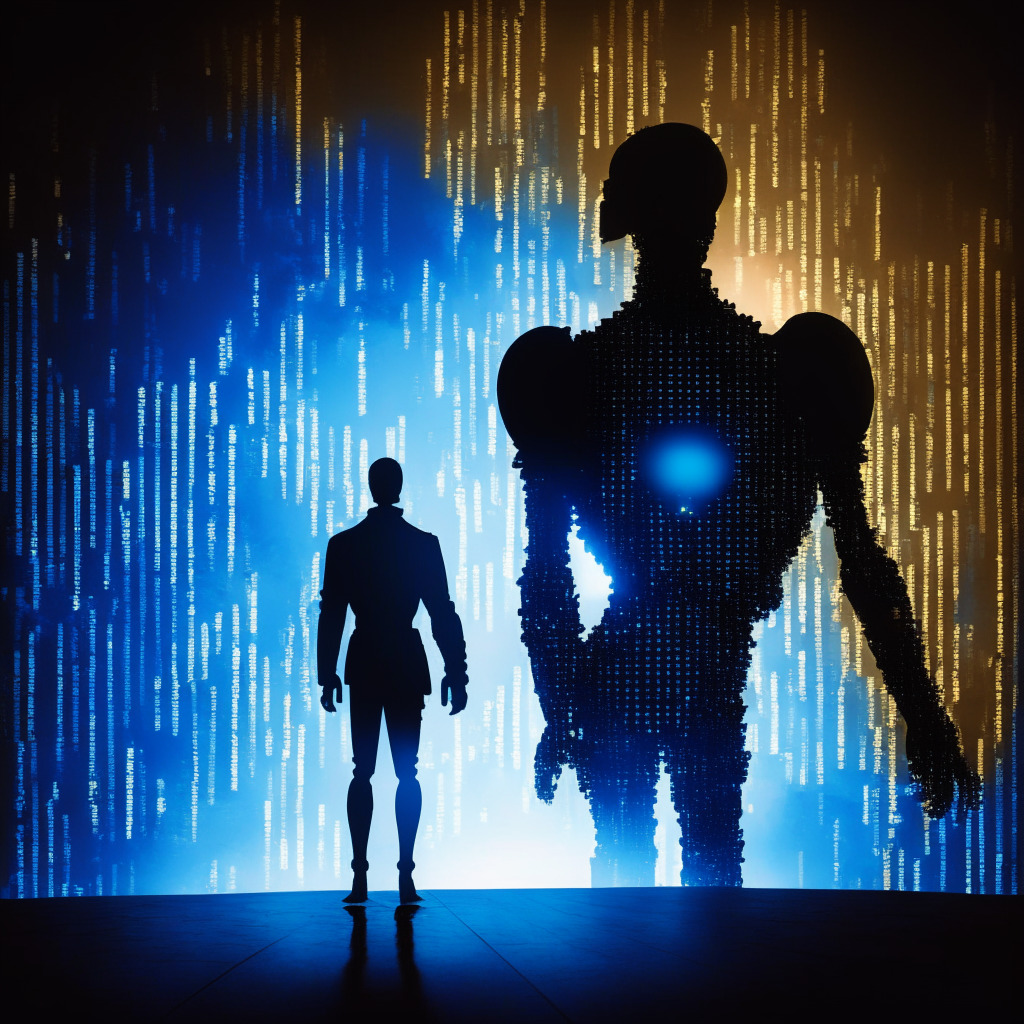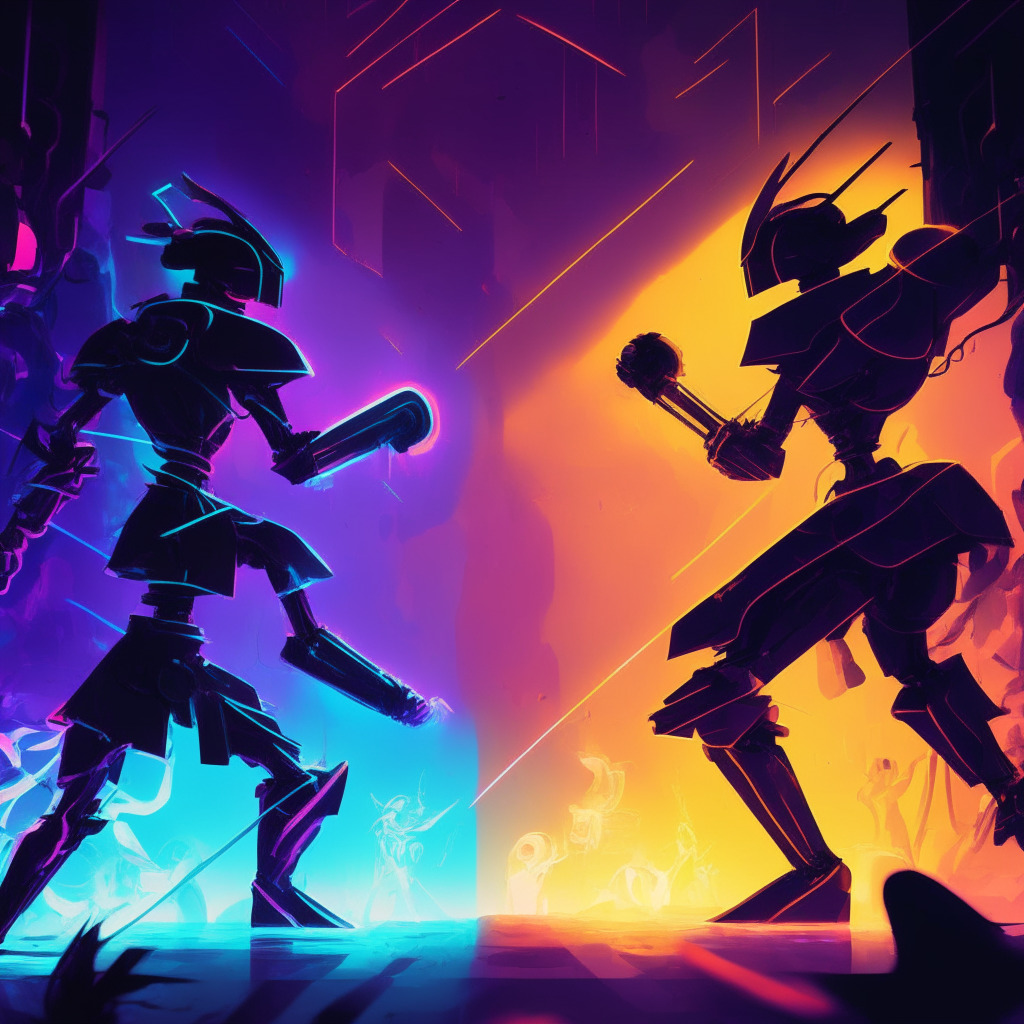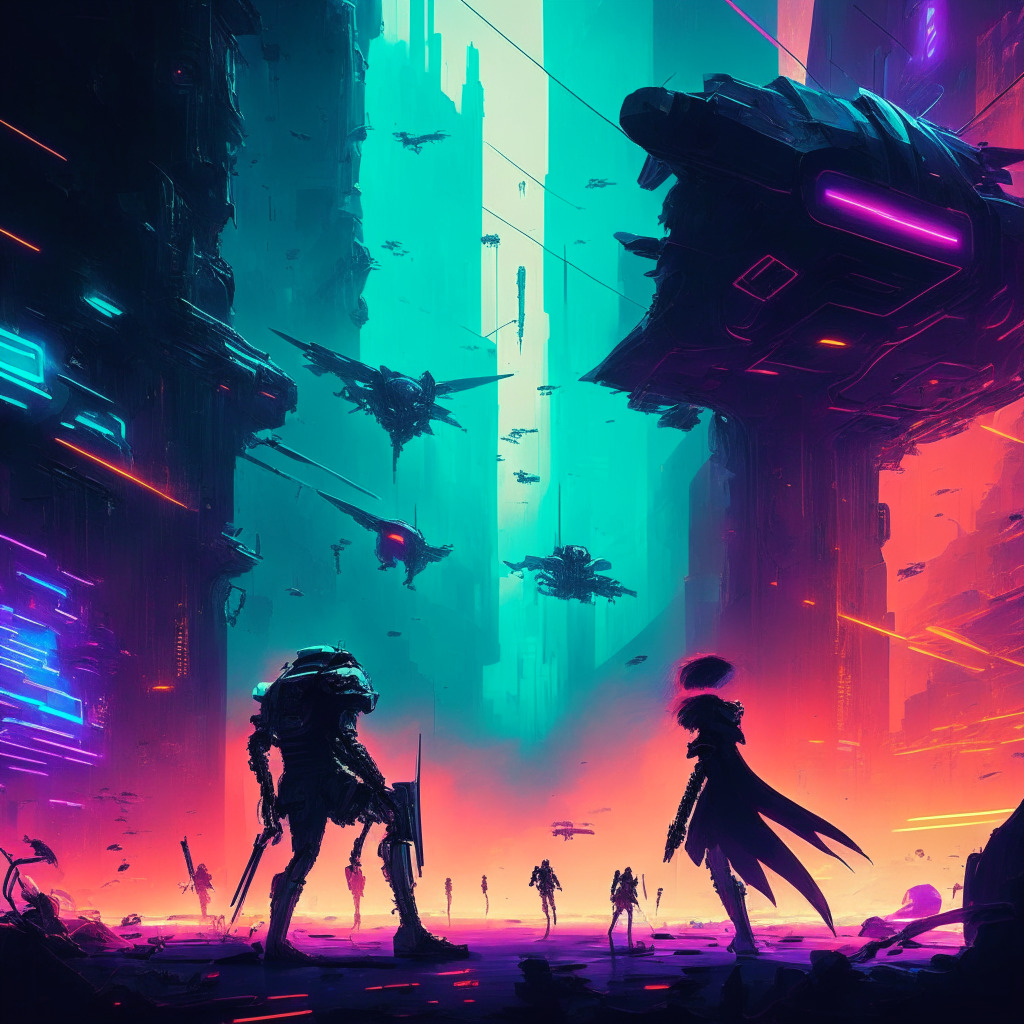Google’s move to integrate advanced, browser-based AI program Bard into Google Assistant could revolutionize user interaction. Bard harnesses the ability to undertake complex tasks like composing essays or codes, raising concerns about privacy imbalance. DBHelper
Search Results for: Google'
Google Cloud’s Role as a Polygon Validator: Implications and Confrontations in Decentralization
Google Cloud’s partnership with Polygon, an Ethereum Layer 2 protocol, strengthens the growing trust in blockchain’s role in our digital future. Google’s entry as a validator bolsters security, and implicates its infrastructure employed by high-traffic platforms, as part of web3 collaborations.
Google Cloud Joins Polygon PoS Network: Boost to Cryptosphere or Threat to Decentralization?
Google’s entry into the Polygon PoS network could lift the blockchain’s credibility and promote mainstream adoption. But worries about centralization arise, potentially favoring powerful players over blockchain’s spirit of decentralization. With Google Cloud as a validator, maintaining a balance between corporate involvement and the founding principles of decentralization is essential.
AI vs Human Authored Content: Google’s Policy Shift Raises Questions on Web Knowledge Reliability
“In a significant policy shift, Google now accepts content generated by artificial intelligence (AI). This change brings several issues to light: defining quality content, distinguishing between human and AI-written work, and the reliability of AI-produced content. This shift may escalate unchecked and unsourced information on the internet.”
Google Cloud Dives Deeper into Blockchain: Expanding Services, Fuelling Debates
Google Cloud is intensifying its blockchain involvement by adding 11 new blockchains to BigQuery, aiding users in querying on-chain history off-chain, and understanding asset flow and smart contract interaction. However, this move also centralizes access to blockchain data, possibly contradicting the crypto world’s decentralized ethos.
Google Cloud’s BigQuery Embraces Blockchain: Progressive Leap or Just A Data Grab?
Google Cloud’s data warehouse, BigQuery, has integrated data from 11 new blockchain networks. While seen as a move validating blockchain technology, skeptics view it simply as Google adding another databank. It also launched a feature simplifying blockchain queries, marking a growing focus on blockchain usability and partnerships within the sector.
Google Cloud Partners with Web3 Startup: A New Era for Mainstream DeFi or A Risky Gamble?
“Google Cloud is partnering with Web3 startup, Orderly Network, to develop user-centric developer tools with an aim to mainstream decentralized finance (DeFi). The goal is to lower barriers preventing widespread adoption of decentralized technology amid growing interest in blockchain workloads.”
Navigating the Tides of Change: Google’s Green Light and the Unpredictability of the NFT Sphere
Google has greenlit advertisements for NFT games, providing a new visibility avenue for decentralized games. However, this decision excludes games promoting gambling. Insurance giants display caution towards NFTs while a security breach raises safety concerns. Meanwhile, geographical adoption of the Metaverse shows contrasting trends between the East and West.
Navigating Privacy: Google’s Privacy Sandbox and the Future of Online Advertising
Google Chrome has unveiled a new ad-curating platform, “Privacy Sandbox,” aimed at eliminating reliance on third-party cookies and fingerprinting. This move, regarded as a significant shift in internet advertising, has sparked mixed reactions over its effectiveness in enhancing user privacy. The balance between targeted advertising and privacy remains a contentious industry issue.
Google’s Digital Futures Project: A Beacon for Ethical AI or Deflection Strategy?
Google’s Digital Futures Project aims to promote the secure, responsible use of AI through research and collaboration with think tanks and academic institutions. However, skeptics question potential conflicts of interest, highlighting the need for transparency in its operations.
Google’s Blockchain Turnaround: The Dawn of NFT Gaming Advertisements and the Hidden Implications
Google has revised its advertising policy to permit promotion of blockchain-powered non-fungible token (NFT) games, affecting NFT games that abstain from promoting gambling content. However, it maintains its prohibition against game advertisements where players risk NFTs for earning additional digital assets.
Google’s AI Policy Update: A Step Towards Transparency or an Ethical Minefield?
Google’s recent policy update mandates disclosure of AI-generated content in political ads, aiming to increase transparency and ethics in AI. The policy will apply to image, audio, and video content from mid-November 2023 onwards. However, this doesn’t solve all AI ethics issues, especially given the rise of Deepfakes.
Google’s Softened Stance on Crypto-Ads: A Boon for Blockchain World or a Safety Rigor?
“Google has updated its cryptocurrency ad policy to permit ads from cryptocurrency gaming companies promoting blockchain-based non-fungible token (NFT) games. The change, effective September 15th, excludes games promoting gambling or gambling services. While this shows a more inclusive approach, Google still maintains stringent rules to protect consumers from potential scams and maintain control over crypto-related advertisements.”
Digitizing El Salvador: The Landmark Partnership with Google Cloud and its Potential Impacts
El Salvador’s national government partners with Google Cloud in a 7-year initiative to digitize governance, healthcare, and education systems. The wide-scale project aims at streamlining processes and revamping infrastructural resources, fostering a data-driven innovative hub. Skeptics question possible implications for citizen privacy and security. Success could inspire similar digital transformations globally.
Navigating the Tightrope: Google’s Compliance with EU’s Digital Services Act – A Blessing or Burden?
Google is revamping its service policies in line with the EU’s Digital Services Act (DSA), expanding its Ads Transparency Center and making data more accessible. Yet, this move triggers debates about potential drawbacks, with fears that information could be manipulated to spread harmful misinformation. Additionally, despite Google’s compliance efforts, the complexity of adhering to DSA guidelines underscores the difficulty of executing such well-intentioned regulations without stifling innovation or compromising safety online.
Dogecoin’s Struggle vs Google’s AI Prediction: Wall Street Memes Coin’s Rising Popularity
Google’s AI chatbot, Bard, predicts Dogecoin could reach $0.10 by the end of 2023, driven by increased use for transactions, tipping, donations, and media attention. However, the bearish market imposes resistance, leading crypto enthusiasts to consider alternative coins like $WSM by Wall Street Memes.
Battle of AI Chatbot Giants: Google BARD, ChatGPT and Ernie Impacting the Future of Web3 Development
“The AI market, strengthened by chatbots like Google BARD, ChatGPT, and Ernie, could be worth a staggering $267 billion by 2027. These platforms contribute different strengths to Web3 development; however, improvements are needed, particularly for Ernie, largely trained on Chinese data.”
Google vs. Alphabet Workers Union: Labor Laws and AI Job Terminations Decoded
Alphabet Workers Union alleges Google violated federal labor laws by terminating contract employees amid union formation. The layoffs affected various roles involved in Google’s content creation. Despite the allegations, Google asserts terminations were about efficiency and cost-saving measures.
Decoding Meta’s AI Leap into Music: Innovation Meets Legal Hurdles in the Race with Google
“Meta has introduced a suite of generative AI tools called AudioCraft, including MusicGen and AudioGen, aimed at facilitating seamless music creation. The move, which shows promise for music enthusiasts and professionals alike, signals exciting possibilities for the music creation process and the AI development landscape.”
BTC20: The Breakthrough Token Outpacing Bitcoin and Pepe Coin in Google Trends
The ERC-20 token, BTC20, is exceeding both Pepe coin and Bitcoin in popularity and has gathered over $3.4 million in presale in just nine days. Offering potential yields up to 520%, it attracts investors with the concept of owning bitcoin on the Ethereum blockchain at bitcoin’s original 2011 price with added environmental benefits.
Google’s Embrace of NFT Games: A Leap Forward or a Double-Edged Sword?
Google Play Store’s recent decision to permit NFT games is a testament to blockchain’s growing acceptance. However, Google restricts the inclusion of gambling elements in these games. Even as NFT games redefine the digital world, policies, layoffs and burgeoning transactions highlight both the potential and uncertainties of NFTs.
Google’s Bard Launch in EU and Brazil: Triumph Amid Regulatory Hurdles & Dwindling Novelty
Google’s AI tool, Bard, has recently launched in the European Union and Brazil despite regulatory complications. Bard, now able to respond in over 40 languages, encompasses new features including spoken responses and image analyses. However, its release coincides with a class-action lawsuit in the US accusing Google of misusing personal data for AI system training.
Google Play Embraces Blockchain and NFTs: Major Shift or Hoax for Developers?
Google Play, the popular Android app and game platform, has announced a significant policy change, now allowing the incorporation of digital assets like non-fungible tokens (NFTs) into its platform. This move, aimed at enhancing user experience and generating unique content, lets developers add blockchain-based components to apps and games, provided these digital assets’ existence is clear to users.
Google Play Greenlights Blockchain-Based Apps with NFT Rewards: A Glimpse into the Gaming Future or a Risky Gamble?
Google Play Store has started to allow games featuring nonfungible token (NFT) integrated rewards on its store, owning to relaxation in its stance towards blockchain-based apps. However, developers are restricted from glamorizing potential monetary earnings or allowing gambling with loot boxes.
Navigating the Choppy Waters: Google Play’s Embrace of NFTs and Blockchain Technology
Google Play has revised their policy to accommodate developers integrating digital assets, such as non-fungible tokens (NFTs), into their apps and games. This move, prioritizing user-owned content, aims to foster user loyalty through exclusive NFT rewards, while ensuring responsible use of blockchain technology.
Google AI Training Lawsuit: Clash Between Privacy Rights and Technological Evolution
Google faces a lawsuit for allegedly misusing data, including copyrighted items, for AI training without necessary consent, sparking a debate about internet ownership. A court order could demand explicit user permission for data collection or potentially fine Google up to $5 billion.
Google Cloud’s AMLAI: Game Changer for Fintech or Privacy Nightmare? Pros, Cons & Conflicts
Google Cloud’s Anti Money Laundering AI (AMLAI) service, recently tested with HSBC, introduces machine learning for efficient money laundering detection at scale. Despite success, concerns about data security, privacy, and job displacement prompt cautious adoption of AI in the financial sector.
Unlocking IT Job Search Potential: Google Operators vs. Traditional Methods
Google search operators can refine IT job searches by specifying job titles, locations, and skill requirements. However, relying solely on them may limit opportunities; a well-rounded strategy should include industry-specific job boards, professional networks like LinkedIn, and proactive networking efforts.
Google Cloud’s Million-Dollar Crypto Mining Attack Protection: A Boon or Cause for Skepticism?
Google Cloud now offers $1 million in protection for subscribers to its Security Command Center Premium against undetected crypto mining attacks. This move showcases Google’s commitment to combating cybersecurity threats in the blockchain and crypto space, while raising questions about overall security efficacy.
Google Bard vs. OpenAI ChatGPT: The Battle for AI Chatbot Dominance and Future Implications
Google’s AI chatbot, Bard, challenges OpenAI’s ChatGPT with upgrades introduced at the Google I/O conference. Transitioning to the PaLM 2 model and offering different versions for various applications, Bard provides improved performance in translation and coding support. Despite ChatGPT’s current adoption advantage, Bard’s free availability may attract users.
Google’s AI Revolution: PaLM 2, Gemini, and the Future of Search Engines & Consumer Experiences
Google’s recent announcements at the annual Google I/O conference reveal AI-backed features, like the updated Pathways Language Model (PaLM 2), which improves reasoning, coding, and multilingual capabilities. Integrated into 25 apps, PaLM 2’s advancements signal significant changes in search engines and AI integration, with forthcoming Gemini offering even more advanced capabilities.
AI Dominance: Google vs. Open-Source Communities – Competition, Pros, and Cons
Google may be losing dominance in the AI field due to rapid advancements made by the open-source community, posing a challenge to the tech giant’s AI prowess. Independent engineers create AI models faster, cheaper, and more customizable than proprietary technology, raising concerns for major companies in the AI sphere.

